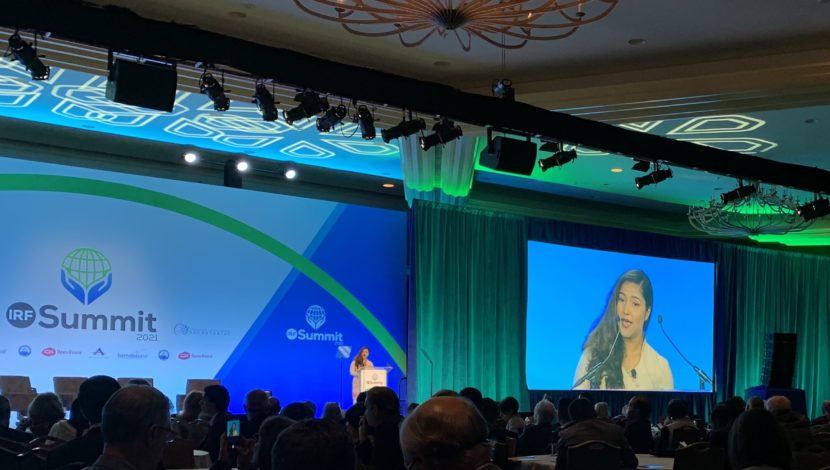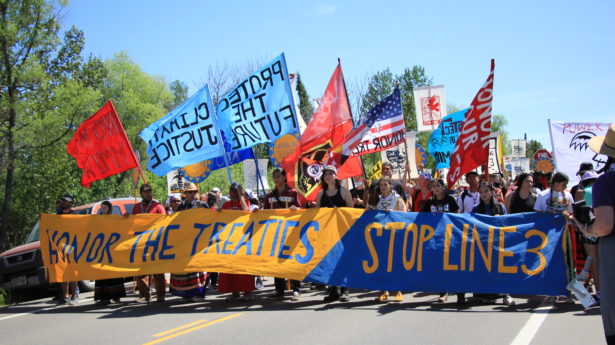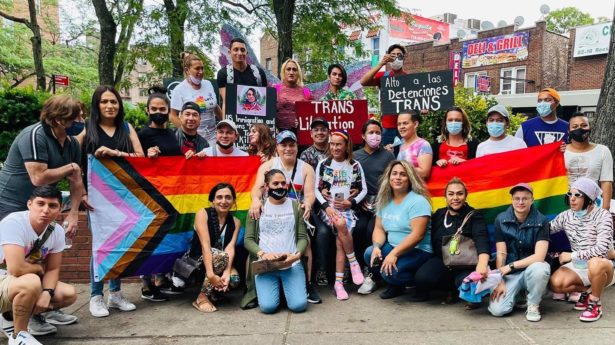The Unitarian Universalist Service Committee advances human rights through grassroots collaborations.
Strange Bedfellows: Reflections on Attending the International Religious Freedom Summit

By on July 22, 2021
At the International Religious Freedom Summit in Washington, D.C. earlier this month, there were impassioned remarks defending the rights of conscience for all people. There were difficult personal testimonies to horrible human rights abuses connected to religious persecution. And there was a call for organizing across party lines to stop genocide.
UUSC attended this event to support our Rohingya partners facing religious persecution and genocide in Myanmar, and others facing religious discrimination around the world. Oftentimes, our Burma work leads us to make common cause with unlikely allies, as evangelical and right-wing groups have also been active in speaking out against oppression in Burma. This is welcome. I’m happy to join forces with anyone who sincerely wishes to advance justice for the Rohingya. But I found myself unable to overlook the hypocrisy and lack of self-reflection among some of the leaders and groups involved.
Organized under the leadership of the former Ambassador at Large for International Religious Freedom Sam Brownback (former Republican governor of Kansas) and philanthropist Katrina Lantos Swett (daughter of late Democratic Congressman Tom Lantos, a survivor of the Holocaust), the summit was designed to be bipartisan, but was inclined to conservatism. The call for protecting international religious freedom was mostly uncritical of historic and current instances of religious oppression within the United States. The speakers representing a U.S. exceptionalist perspective were cheered most enthusiastically, while officials in the current administration (including Nancy Pelosi, Antony Blinken, and Samantha Power) were met with whispers of derision and polite applause.
Beyond the expected political divide present at the summit, the running tension among the speakers at the event involved the place of religious freedom among human rights. Former Congressman Frank Wolf warned that focusing on rights beyond religious freedom can lead to tyranny. A different perspective was offered by David Saperstein, a rabbi and former Ambassador at large for Religious Freedom, who insisted that we cannot ignore other vital human rights and hope to protect religious freedom. Samantha Power, currently Administrator for U.S. Agency for International Development (USAID), spoke of the intersecting importance of human rights and the commitment of the Biden-Harris administration to protect and advance religious freedom (among other human rights) at home and around the world.
All of this, even the derisive whispers around me when Powers or Pelosi were speaking, was almost tolerable. I was there, in large part, in support of UUSC partner Wai Wai Nu, who shared her story of the persecution and genocide of Rohingya Muslims in Burma. Religious freedom does matter. At UUSC we partner with communities to address religious persecution.
I confess, though, that I could not bear to listen to Tony Perkins address religious nationalism. Perkins is the President of the Family Research Council. He was appointed to serve on the Commission on International Religious Freedom (CIRF) by former President Donald Trump. He does not respect my religious freedom. His public positions on racism, LGBTQ+ rights, and so much more are offensive in the face of a human rights framework. I do not need to hear from Perkins on the topic of religious nationalism. Or frankly, anything at all. His words and actions have caused considerable harm.
Still, the appointment, by President Biden, of a new Ambassador-at-Large for International Religious Freedom may provide an avenue for advocacy. Melissa Rogers, Biden’s executive director of the White House Office of Faith-Based and Neighborhood Partnerships, assured the group that this appointment would be made soon. She also named one of the elephants in the room, highlighting Biden’s reversal of Trump’s restrictions on Muslim and African immigration. And she emphasized the importance of the LGBTQ+ rights.
I will be expressing my concern to the new Ambassador about the presence on the Commission of a person who disparages religious practices different from his own and whose work seeks to limit the religious freedom of many. And I will hope that the Commission, and other instruments of the IRFA of 1998, might transcend the colonialist, white/Christian supremacist framework that appears to be baked into the vision of its work.
In the meantime, I am reassured by the work of Wai Wai Nu and so many other grassroots partners who have taught us at UUSC that the vision for liberation and human rights, and the muscle to create transformative change, thrive most far from the halls of power and privilege.
***
About UUSC: Guided by the belief that all people have inherent worth and dignity, UUSC advances human rights globally by partnering with affected communities who are confronting injustice, mobilizing to challenge oppressive systems, and inspiring and sustaining spiritually grounded activism for justice. We invite you to join us in this journey toward realizing a better future!
Image Credit: UUSC

